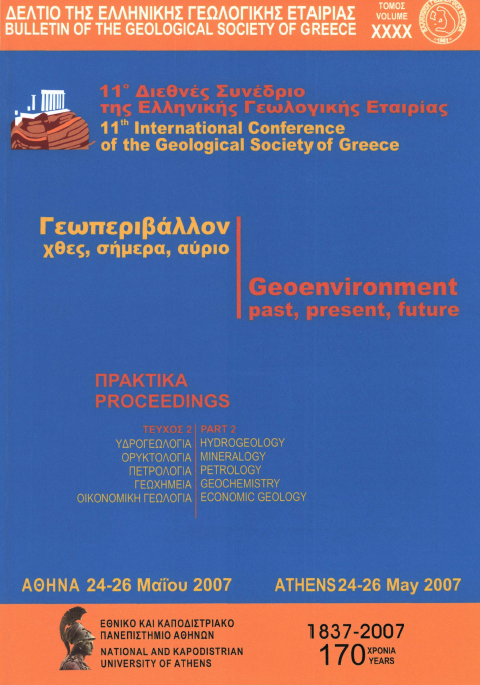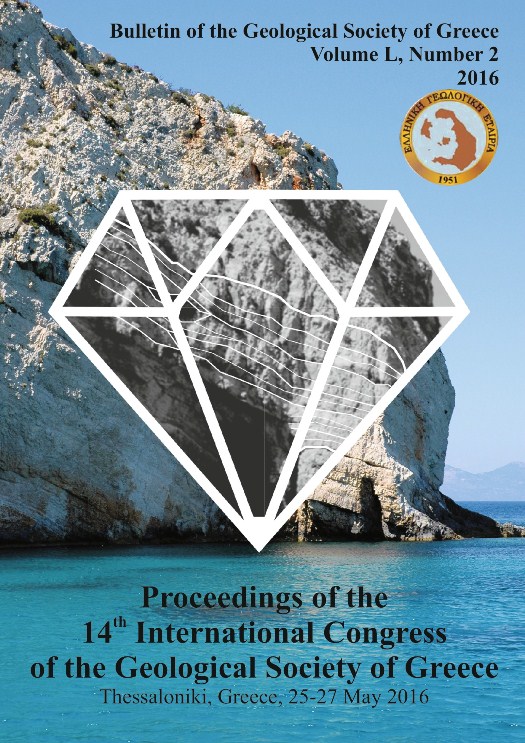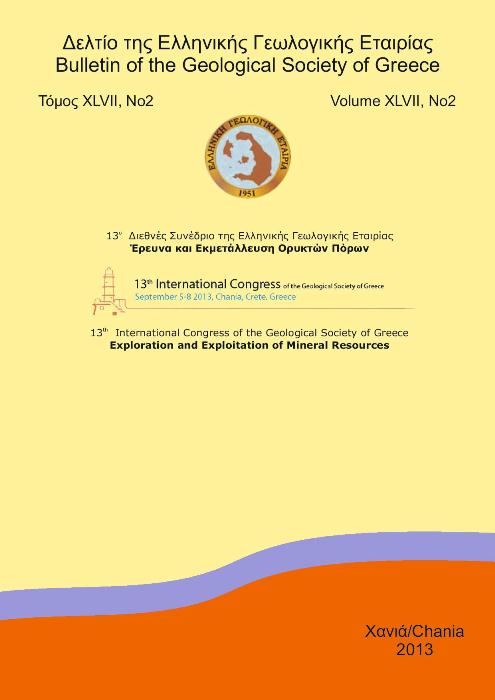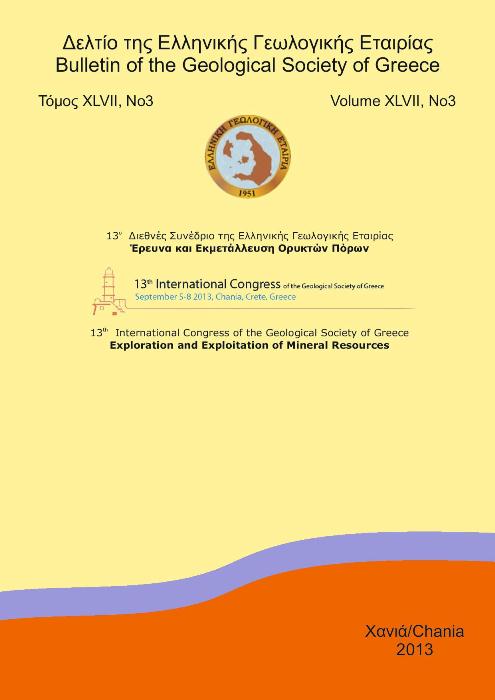HYDROGEOLOGICAL ASSESSMENT OF THE SALINIZATION PROBLEM OF XILAGANI - IMEROS AQUIFER SYSTEM IN SW PLAIN AREA OF RHODOPE PREFECTURE, GREECE

Abstract
This paper investigates the progress of groundwater salinization within the plain area ofXilagani - Imeros, in SW part ofRhodope Prefecture, as well as the suitability of groundwater for drinking and irrigation use, after qualitative classification of groundwater samples from selective wells of the study area based on relevant guidelines. Some managerial suggestions for the confrontation of the seawater intrusion regime of the study area are also included. The investigation in question took place between 1994-1997 and 2002-2006, and involved drilling of test wells, geoelectric sounding measurements, grain size analyses, elaboration of hydro logical data, monitoring and relevant analysis of the groundwater level fluctuations in selective wells, electrical conductivity measurements as well as conducting chemical analyses of water samples from selective wells of the study area and relevant elaboration.
Article Details
- How to Cite
-
Pliakas, F., Mouzaliotis, A., Kallioras, A., & Diamantis, I. (2007). HYDROGEOLOGICAL ASSESSMENT OF THE SALINIZATION PROBLEM OF XILAGANI - IMEROS AQUIFER SYSTEM IN SW PLAIN AREA OF RHODOPE PREFECTURE, GREECE. Bulletin of the Geological Society of Greece, 40(2), 536–547. https://doi.org/10.12681/bgsg.16319
- Section
- Hydrology and Hydrogeology

This work is licensed under a Creative Commons Attribution-NonCommercial 4.0 International License.
Authors who publish with this journal agree to the following terms:
Authors retain copyright and grant the journal right of first publication with the work simultaneously licensed under a Creative Commons Attribution Non-Commercial License that allows others to share the work with an acknowledgement of the work's authorship and initial publication in this journal.
Authors are able to enter into separate, additional contractual arrangements for the non-exclusive distribution of the journal's published version of the work (e.g. post it to an institutional repository or publish it in a book), with an acknowledgement of its initial publication in this journal. Authors are permitted and encouraged to post their work online (preferably in institutional repositories or on their website) prior to and during the submission process, as it can lead to productive exchanges, as well as earlier and greater citation of published work.






